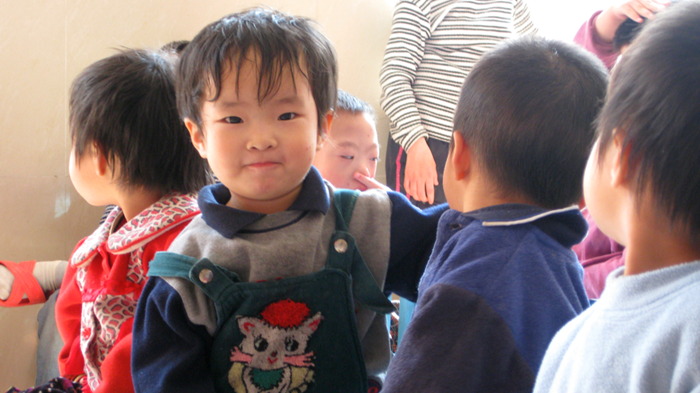
The number of international adoptions hit a historic low last year, despite growing attention toward orphan care among US evangelicals.
Americans adopted 5,372 children in the year ending September 2016, down from a 35-year low the 12 months before. The number of foreign adoptions annually has fallen to less than a quarter of the totals during peak years over a decade ago, with 22,884 adoptions recorded in 2004.
Last year, just over half of internationally adopted children were boys (52%), making it the first time that more males than females were adopted into America, Pew Research Center reported this week. From 1999 to 2016, girls made up 61 percent of adoptees.
The shift can largely be traced to China; in 1999, 98 percent of the children adopted from China were girls. In 2016, it had flipped to 49 percent, partially due to China easing its one-child policy at the end of 2015.
Meanwhile, the Evangelical Council for Financial Accountability (ECFA) reported “eye-opening numbers” on how Christian investment in orphan care and adoption “continues to climb dramatically”:
Overall, charitable giving by Americans grew by a strong 4.1 percent in 2015, according to Giving USA. In that same period, support for Christian orphan care grew at more than three times that rate, rising 12.4 percent.
Christian giving to support adoption grew significantly as well, rising 8.4 percent over the prior year. Other investments in serving vulnerable children, including child sponsorships and children’s homes, also saw strong growth, with 7 percent and 9.8 percent increases respectively.
ECFA calculates that giving to Christian orphan ministries increased by more than 87 percent since 2010, while giving to Christian adoption ministries increased by more than 73 percent. “Christians aren’t only talking about how the Bible calls us to care for orphans,” stated ECFA President Dan Busby. “They are truly putting their money where their mouths are.”
According to State Department data, the top five countries Americans now adopt from are:
- China (2,231 children in FY2016)
- Democratic Republic of the Congo (359)
- Ukraine (303)
- South Korea (260)
- Bulgaria (201)
The drop in international adoptions is not from lack of desire, judging from the orphan care push by evangelicals. Next month marks Adoption Awareness Month, when thousands of churches will recognize the cause during Orphan Sunday.
Among Americans, changing cultural norms have made overseas adoptions a more acceptable option. The growing prevalence of birth control and, later, single parenthood, meant fewer infants put up for domestic adoption. With more mixed-race or adoptive families in churches, Christian couples have felt more comfortable adopting children of different nationalities.
But while American couples are willing, foreign countries are holding back. For example, Russia banned Americans from adopting Russian children in 2012. Guatemala, which has some of the worst child welfare practices on the planet, suspended all foreign adoptions in 2004 in an attempt to curtail child trafficking. Uganda and the Democratic Republic of Congo both made it harder to adopt children out of the country for the same reason.
And in some countries, like Ukraine, a growing culture of domestic adoption means there are fewer children available for prospective parents overseas.
The government said it is making greater efforts to promote international adoption “as a viable option for children in need of permanency around the world.”
State Department staff traveled to 30 countries to keep lines of communication open and relationships healthy. They hosted delegates from 26 countries to assure them of child welfare practices. They ultimately identified three areas where American adoption practices could be improved.
The first is post-adoption reporting, in which adoptive parents fill out forms letting the child’s country of origin know how he or she is doing. Nearly every country requires these reports, though the length of time—during the first three years after the adoption or all the way until the child reaches 18 years old—varies. American parents aren’t good at this—“compliance frequently remains incomplete.”
“When parents fail to fulfill the obligation they agreed to, it reflects badly on US adoptions and may impact the country’s willingness to engage and partner with the United States,” the report said. In fact, officials from several countries have said they won’t allow any more children to be adopted into the US until they see those tardy post-adoption reports.
A second area of concern is “unregulated custody transfer,” when adoptive parents unofficially or illegally send a child to live permanently with someone else. The State Department listed a host of initiatives to stop this, including research grants to help counselors know how to deal with adoption, requirements that prospective parents disclose any past failed adoptions, and proposed regulations for better training for adoptive parents.
The third problem area is the adoption service providers (ASP) themselves. “It only takes one person acting in an unethical manner to imperil the continuation of intercountry adoptions for all children for an extended period of time,” the report said. “Indeed, a bad experience with a US ASP in one country can cause a ripple effect around the world, further weakening confidence in all US ASPs.”
Bad service providers are tricky to rout out, as evidenced by the fact that in eight years, no one has tattled on one. “Those most likely to have information on misconduct often express hesitancy about filing complaints,” the report said. “Adoptive families cite the fear of being unable to complete their adoptions, or losing their newly adopted child, if they complain.”
And fellow adoption agencies are afraid of being ostracized or retaliated against, which could include “using contacts in foreign governments to get the complaining agency banned from the country.”
The department proposed regulations that will let adoptive parents and others complain of agency misconduct directly to the government, without first having to file it with the agency itself.
The State Department said it also took steps in the last year to make international adoptions more nimble, designing an accrediting system that lets the department “develop country-specific criteria that correspond to identified problems in a particular country.” De-standardizing criteria means that if a problem isn’t widespread, or the solution wouldn’t work for every country, only service providers working in that specific country would be affected by any changes in regulations.
On the topic of orphan care, CT has recently covered the decline of the traditional orphanage, efforts to curb domestic adoption costs, and legal protections for Christian adoption agencies.

Support Our Work
Subscribe to CT for less than $4.25/month


















